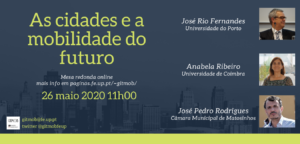GITMob meeting no. 26
This webinar was presented by Thiago Sobral .gif) , a researcher with the Instituto de Engenharia de Sistemas e Computadores, Tecnologia e Ciência (INESC TEC), and Invited Assistant Professor at the University of Porto, Faculty of Engineering. This presentation stems from his recently published work available here. Link: Zoom meeting.
, a researcher with the Instituto de Engenharia de Sistemas e Computadores, Tecnologia e Ciência (INESC TEC), and Invited Assistant Professor at the University of Porto, Faculty of Engineering. This presentation stems from his recently published work available here. Link: Zoom meeting.
Abstract
In the first session, we provided a gentle introduction to ontology and discussed the different types of ontologies and their building blocks, and their importance for providing semantics to heterogeneous data. In this next session we will provide some real examples related to public transportation data, which can present different types of data heterogeneity and conform to distinct standards. We will present some practical tools that can be used to model ontologies and integrate them with actual data using graph databases.
Short Bio
Thiago Sobral is a postdoctoral fellow at INESC TEC and Invited Assistant Professor at the Faculty of Engineering at the University of Porto (FEUP). He holds a Ph.D. in Transportation Systems (MIT Portugal Program) and an M.Sc. in Services Engineering and Management from FEUP. He also holds a B.Sc. in Applied Mathematics, with a major in Scientific Computing. He has been participating in research projects related to urban mobility and has taught some workshops on Data Visualization. His main research interests are data visualization, semantic web technologies, and ontology modeling.



 GITMob meeting no. 21
GITMob meeting no. 21 GITMob meeting no. 16
GITMob meeting no. 16